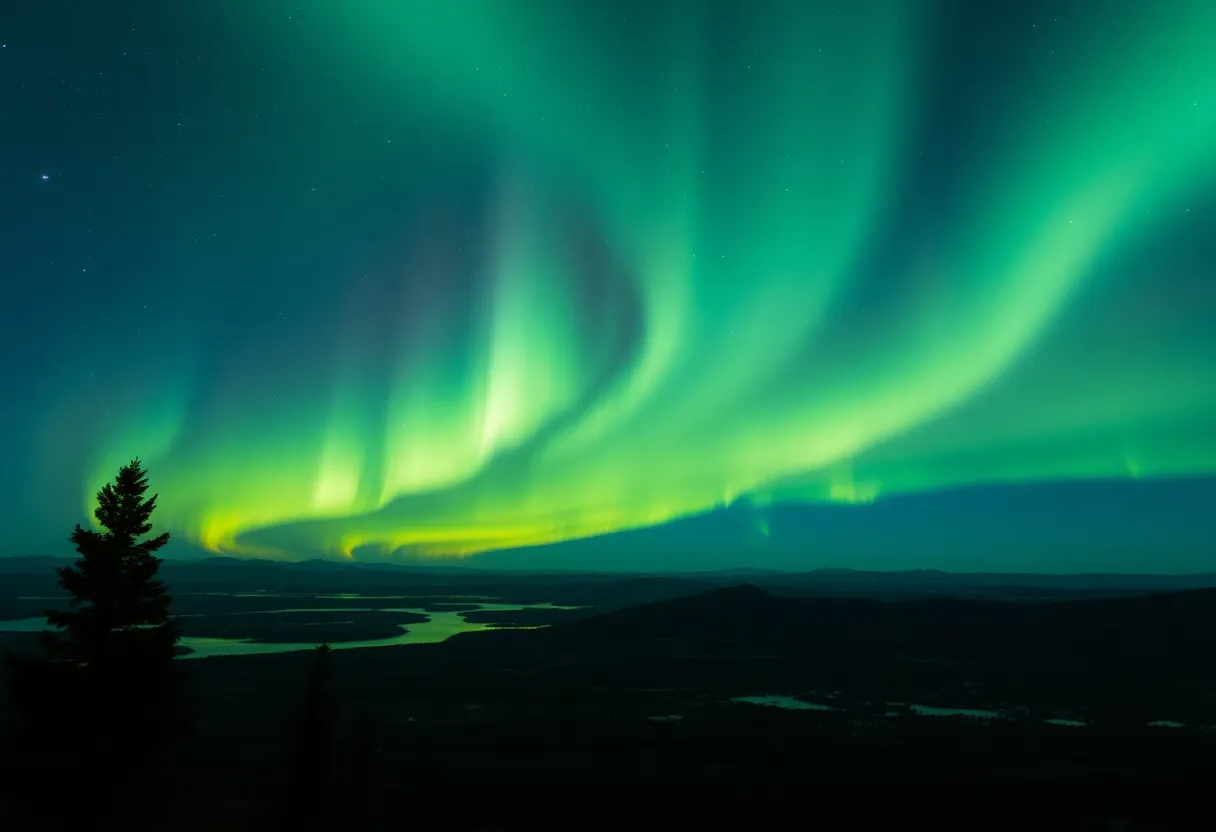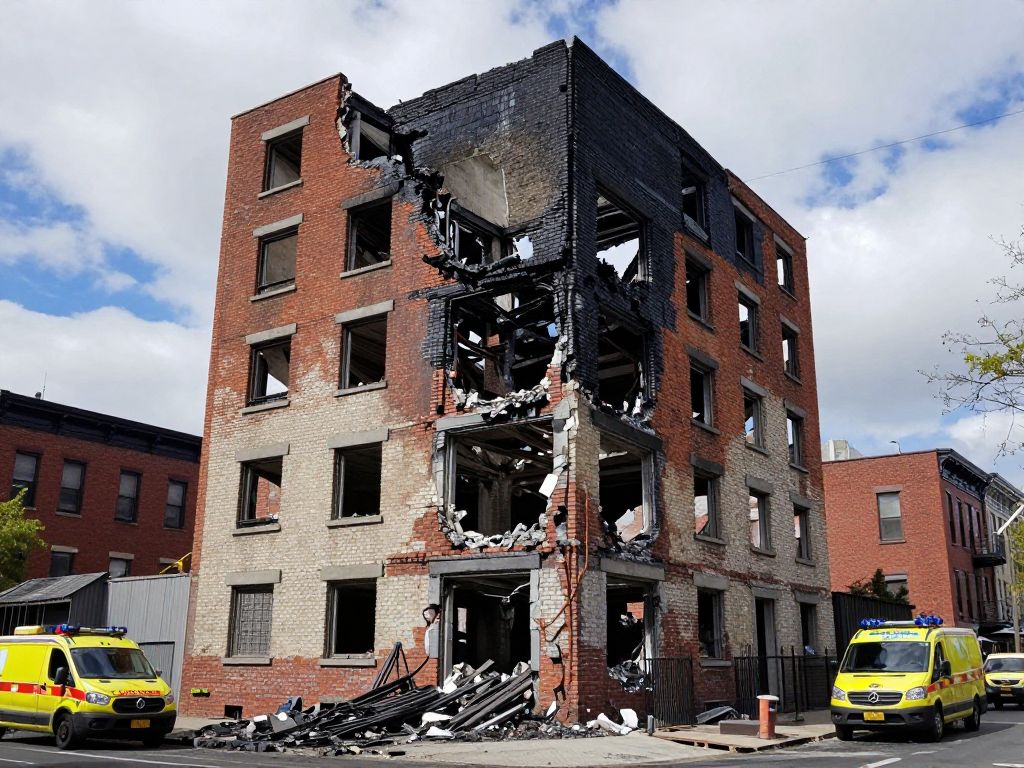News Summary
This weekend, the Aurora Borealis is expected to light up the night sky across several northern U.S. states. Originating from solar winds and magnetic interactions, the dazzling display can be seen in states like North Dakota, Michigan, and New York. With a Kp-index peaking at around 4.67, conditions are ripe for witnessing this natural phenomenon. Astronomers suggest ideal viewing spots away from city lights and good weather for the best experience. Get ready to enjoy one of nature’s most beautiful spectacles!
Geomagnetic Storms Light Up the Sky: Aurora Borealis Visible All Weekend!
Are you ready for a dazzling night show? This weekend, the northern lights—also known as the Aurora Borealis—are set to put on a spectacular display across the northern U.S. States like North Dakota, South Dakota, Iowa, Michigan, New York, Vermont, New Hampshire, Maine, Washington, Idaho, and Montana are prime spots for witnessing this natural wonder!
Understanding the Magic Behind Auroras
So, what causes these beautiful lights? It’s all about the interactions between solar winds and the Earth’s magnetic field. When solar storms occur, such as those caused by coronal mass ejections (CMEs), charged particles from the sun collide with our planet’s atmosphere, resulting in those mesmerizing colors we see in the night sky.
The Kp-Index and What It Means for You
To track these celestial phenomena, astronomers use a scale called the Kp-index. It ranges from 0 to 9, indicating the level of global auroral activity. This weekend, the Kp index is forecasted to peak at around 4.67, which suggests that many of you will have excellent opportunities to catch a glimpse of the auroras. Even if conditions fluctuate, there’s still a good chance for auroras to light up the skies!
When and Where to See the Show
For those eager to witness this stunning natural light show, it’s important to consider your viewing conditions. First, aim to find spots away from city lights for the best visibility. The ideal times to look up are generally after dark, when the sky is at its darkest. Make sure to check the weather forecasts, as fog or cloud cover can obstruct your view—nobody wants their aurora party spoiled by gloomy skies. Additionally, be aware that increased wildfire smoke in certain locations might also hinder visibility, so plan accordingly!
A Short-lived but Beautiful Phenomenon
Each geomagnetic storm is graded on a scale from G1 (minor) to G5 (extreme). Recently, we saw a G4 level storm, which was caused by a particularly active CME that reached speeds of around 1,938 km/s (that’s a whopping 4.3 million mph!). This extraordinary activity has pushed the auroras to be visible further south than usual, with reports even coming in from as far as California!
The active conditions are expected to remain through early June 2, with possibilities of a smaller CME arriving late on June 2 or June 3, although this may not be as intense. If conditions reach G2 levels during these weaker storms, folks in places like New York and Idaho could still catch some beautiful auroras lighting up their night skies.
Tips for Capturing the Moment
For those looking to snap a picture of this breathtaking sight, it’s essential to prepare beforehand. Using a sturdy tripod and setting your camera to long-exposure settings can help capture the faint lights, ensuring you have a beautiful memory to look back on. Don’t forget to bundle up; it can get chilly at night!
Ready to Shine?
As the weekend approaches, excitement builds for the chance to see the Aurora Borealis. With proper planning, patience, and a little bit of luck with the weather, many will have the opportunity to experience this magical natural light show. Whether it’s a solo adventure or a group outing, prepare to be awestruck by one of nature’s greatest gifts!
Deeper Dive: News & Info About This Topic
- Space.com: Aurora Alert
- Wikipedia: Aurora Borealis
- SFGate: Northern Lights in Bay Area
- Google Search: Aurora Borealis
- KOMO News: Aurora Borealis Visibility
- Encyclopedia Britannica: Geomagnetic Storm
- Statesman: Aurora Borealis in Texas
- Google News: Aurora Borealis
- WTOP: How to Catch a Glimpse of the Aurora
- Google Scholar: Aurora Borealis

Author: STAFF HERE PHILADELPHIA WRITER
The PHILADELPHIA STAFF WRITER represents the experienced team at HEREPhiladelphia.com, your go-to source for actionable local news and information in Philadelphia, Philadelphia County, and beyond. Specializing in "news you can use," we cover essential topics like product reviews for personal and business needs, local business directories, politics, real estate trends, neighborhood insights, and state news affecting the area—with deep expertise drawn from years of dedicated reporting and strong community input, including local press releases and business updates. We deliver top reporting on high-value events such as Mummers Parade, Philadelphia Flower Show, and Thanksgiving Day Parade. Our coverage extends to key organizations like the Greater Philadelphia Chamber of Commerce and United Way of Greater Philadelphia, plus leading businesses in telecommunications, food services, and healthcare that power the local economy such as Comcast, Aramark, and Children's Hospital of Philadelphia. As part of the broader HERE network, we provide comprehensive, credible insights into Pennsylvania's dynamic landscape.





